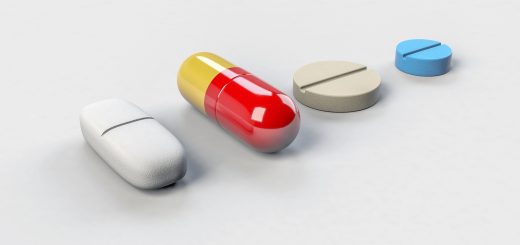Not Hungry in the Morning: Should We Force Ourselves to Eat?
An early wake-up call, limited time to prepare, the stress of the day ahead… that’s enough to whet your appetite!
And yet, the health messages are clear. Breakfast is the most important meal of the day. So, can we do without it or should we put aside our feelings and force ourselves to eat even if we are not hungry in the morning? Some insights to find the right compromise!
Nutrition: listening to your body
The key element to balance your daily food intake is to be attentive to the clues given by your body. Eat when you feel hungry and stop when you reach satiety.
Identify the feeling of hunger
Hunger is a message sent by our body to signal its need for energy. It is manifested by various signs like feeling “hollow” in the stomach, stomach cramps, rumblings, fatigue, difficulty concentrating, etc. It is different from a simple desire to eat.

Not hungry? Don’t eat!
If the feeling of hunger does not appear when you get up, you should not feed yourself with food that your body does not need right away. So we should wait for the sensation to manifest itself before having breakfast.
Is breakfast important?
Start the day off on the right foot. Breakfast is a full-fledged meal not to be neglected. It is indeed one of the most important meals of the day after the body has fasted for one night. Breakfast allows the intake of necessary energy to accomplish daily tasks in the morning program, promoting the processes of concentration and memorization.
Breakfast also reduces the feeling of hunger during the rest of the day and limit your envy for snacking. As you know, snacking encourages excess calories and unhealthy fats.
Good to know: people who eat breakfast have a lower body mass index (BMI) than those who do not.

Breakfast is a meal that has an impact on health
An American scientific study, conducted exclusively in men, showed that subjects who skip breakfast have a 27% increased risk of developing heart disease:
Previous studies have linked breakfast to a lower risk of high cholesterol, obesity, hypertension, and diabetes. One of the reasons given for these results is the better distribution of food intake over the day.
This improved distribution prevents significant inflows of sugars into the blood, a factor in poor blood vessel.
What is the composition of an ideal breakfast
Nutritionists advise to compose your breakfast with:
Dairy, milk, yogurt, cottage cheese or any of these cheese: cow, sheep, goat;
a cereal product, bread, rusks, flakes: industrial cereals are to be avoided because they are very rich in sugar;
One fruit or a fruit juice, in particular, one that has a rich vitamin C content like orange or pineapple;
Treat yourself, have a drink of your choice to hydrate your body – tea, coffee, etc.
Note: Your morning meal should cover about a quarter of the daily energy intake, an average of 500 kcal for a woman and 625 kcal for a man with moderate physical activity.

Breakfast: organize yourself so as not to miss it
Sometimes it only takes a few adaptations in your lifestyle to better structure your food intake. Thus, to combine appetite and breakfast, you can:
Avoid sitting at the table as soon as you wake up. No rule says breakfast is the first thing you should be considering in the morning. Indeed, it can be the last step in the morning preparations, after showering and dressing.
Take your evening meal earlier, or reduce your caloric intake. This way, when you wake up on the following day, you won’t have that too-full feeling in your belly.

Vary your menus and enjoy yourself with foods you love; be satisfied with a hot or cold drink to hydrate your body. And, take to work foods that are easy to eat (fresh or dried fruit, yogurt or compote, a piece of bread or cereal cakes).
Good to know: Drinking a glass of water when you wake up can help stimulate your appetite.
Last but not least: moisturize your body
During the night, the body becomes dehydrated. The first reflex to have in the morning is to rehydrate it by drinking a large glass of water at room temperature, or even warm.

You can add a dash of lemon to your glass of water to make a real healthy cocktail for the body as it effectively:
– eliminates toxins;
– contributes to the proper functioning of the immune system;
– promotes digestion;
– gives energy.
Good to know: it is better not to drink too cold water in the morning when you wake up because your body heats up very slowly. By swallowing a glass of cold water, you are slowing down the process, and you are retarding the time it takes for you to start feeling hungry.
Hope the above helps you out tomorrow morning. Take care!




5 Responses
[…] Not Hungry in the Morning: Should We Force Ourselves to Eat? […]
[…] Not Hungry in the Morning: Should We Force Ourselves to Eat? […]
[…] – Not Hungry in the Morning: Should We Force Ourselves to Eat? […]
[…] – Not Hungry in the Morning: Should We Force Ourselves to Eat? […]
[…] – Not Hungry in the Morning: Should We Force Ourselves to Eat; […]